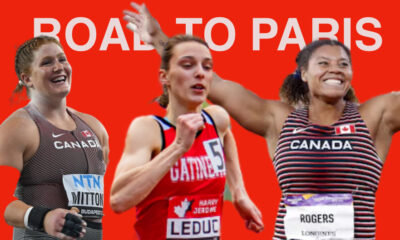Most get involved in sports to excel, but there are different areas of the game in which an individual can achieve success and not just as a player.
Regardless of the sport, it’s essential for everyone to have and maintain an open mind when it comes to understanding the game and it’s not just about winning.
Winning is nice, but a game simply can’t have two winners and as long as the game is played in a safe environment or surroundings with no one having to stop at the hospital on the way home, everyone’s a winner.
I have either been involved in or watched games where a coach, trainer or player simply won’t listen to what the official has to say and their actions dictate this and I often question what type of parent they are at home if one of their kids happen to spill some milk?
Will they flip out and go into a rage that they not only are vocal using profanity or possibly worse yet, throw things or hit someone and this is something I will never know, but hope it never happens.
I have always been a strong proponent for open lines of communication when officiating any game, regardless of the level you officiate and while both sides might not agree, the coach(s) understand your point of view.
From minor sports to the pro level of the game around the globe as long as everyone can voice their point of view, without “flying off the handle”, it’s a success.
With the current IIHF World Junior Hockey Championships taking place it was not only necessary, but imperative for the event to obtain quality officials to work all games.
Not all officials will work the finals, but this alone depends on overall performance showing consistency as well as communication.
Now we are hearing about how this actually works and in an article well written, it shows the necessity of strong communication from officials to players and/or coaches.
Enjoy the read from the IIHF site regarding how this works!
The Swiss were controlling the puck on a power play in their opponents’ end of the rink when a Swiss forward started to establish position in the crease.
The referee to the side of the net called at him to move, which he did, and a moment later Damien Riat fired a shot through traffic that beat Jakub Skarek for a critical goal.
“We want to avoid stoppages where possible,” explained IIHF Officiating Manager Konstantin Komissarov. “As soon as the player established position, he was given a warning. Had he not listened, play would have been whistled and the faceoff taken place outside the blue line.”
This moment illustrates a key element of IIHF hockey—constant communication between players and officials, even while play is going on.
This is unheard of in other sports and is, indeed, a part of the very nature of hockey where camaraderie and respect are essential to the success of game action.
“We are always trying to keep the players informed of how the officials see the game,” Komissarov continued. “This gives teams a better chance to create flow and scoring chances according to the rules. This is our job.”
Officials getting involved in the game can only help players do what they do best—play the world’s fastest game at their fastest pace.
Linesmen and referees will always pick up a broken stick if they have a chance, or move a helmet or glove out of the way.
Not only might it interfere with play to the detriment of flow, it is also a safety hazard.
On offside situations, you’ll hear the linesmen holler a warning, allowing players to know the call without having to look to the side for a linesman’s arm.
Icing calls and wash outs are also the same and players skating full speed appreciate knowing if an icing call is—or isn’t—in effect.
Referees will often warn a player if he is in danger of incurring a holding penalty, telling a defender to “let him go.” If players are in a scrum in the corner trying to get a whistle, or not trying to play the puck, the near referee will tell players to, “move it!” in no uncertain terms.
Komissarov mentions “We can communicate with players, but in the end we must call the game by the rules and if a player is penalized, he can’t be surprised.”
Another objective achieved through communication is to foster mutual respect, so the players know the officials and vice versa.
Talk to players after a game or during a quiet moment and they will all say that just as important as calling a game strictly by the rule book is to call a game consistently, from start to finish and from game to game.
Communication helps create a rapport between everyone on ice and at the benches, and that in turn fosters a better-officiated game.
“This extends to coaches on the bench and general managers after the game,” Komissarov concluded. “Coaches will tell us they want eye contact with the referee for line changes, not just a raised hand, and this can be important for him to get the players he wants onto the ice nor not. Another situation is a penalty.
Sometimes the referee will explain a call, and the coach appreciates this.
The communication is meant to help play, not create confusion or confrontation -it’s all respectful and in the name of the quality of the game.”








